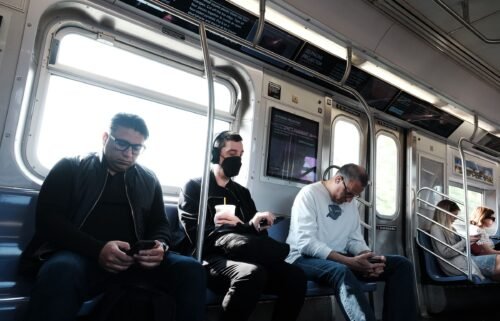CDC says severe allergic reactions to coronavirus vaccine are rare

Only 29 people have experienced severe allergic reactions to the coronavirus vaccine, making it a rare outcome, the US Centers for Disease Control and Prevention said Wednesday.
In the first week and a half of the US Covid-19 vaccine effort, the CDC said there have been 21 additional confirmed cases of severe allergic reactions known as anaphylaxis, bringing the total cases to 29 out of 1.9 million doses administered.
That adds up to a rate of 11.1 cases of anaphylaxis out of 1 million doses administered, the CDC said in its Morbidity and Mortality Weekly Report.
By comparison, the rate of severe allergic reaction for the flu vaccine is 1.3 per 1 million doses.
“The anaphylaxis rate for Covid-19 vaccines may seem high compared to flu vaccines. But I want to reassure you that this is still a rare outcome,” Dr. Nancy Messonnier, director of the CDC’s National Center for Immunization and Respiratory Diseases, told a news conference.
The allergic reactions all came within minutes of getting the vaccine, the CDC said. The CDC has information on 20 of the 21 patients and they all recovered.
Anaphylaxis is a severe allergic reaction, but with treatment usually resolves quickly.
The CDC so far has seen no evidence of geographic clusters of reactions and no hint there were any “bad” lots. The vaccines given to the people who had reactions did not come from the same lot.
Of the people who had the severe allergic reaction, 17 had a documented history of allergies, Messonnier said, including to drugs, medical products, foods and insects.
But such allergies are common and the number of reactions is very rare, so the CDC says people with general allergies should not worry about being vaccinated — but should consult a health care provider before doing so. People with known severe allergic reactions to ingredients in the Pfizer and Moderna vaccines, including polysorbate and polyethylene glycol, should not get the vaccine, the CDC says.
People who have had an allergic reaction to the first dose should not get the second dose for now.
“We’ve been adapting our recommendations as we learn more,” Messonnier said.
The CDC said it will continue to watch for allergic reactions in people receiving the vaccine. The CDC team said people may be reporting more cases or allergic reactions than are usually reported.
“It is possible that intense media attention around the national COVID-19 vaccination program and heightened awareness of reports of anaphylaxis have affected vaccine recipient and health care provider behavior and practices, including elevated concern and anxiety, higher index of suspicion for anaphylaxis, and lower threshold for early treatment of suspected cases, thereby resulting in an increase in diagnosis of suspected anaphylaxis and corresponding stimulated above-baseline reporting to VAERS (the vaccine adverse reaction reporting system),” the CDC team wrote in the MMWR report.
Risk versus benefit
“The known and potential benefits of the current Covid-19 vaccines outweigh the known and potential risks, getting Covid-19,” Messonnier said. “That doesn’t mean, however, that we couldn’t see potential serious health events in the future.”
The CDC has also not seen any other worrying severe reactions to the vaccines.
“We know that safety is one of the public’s biggest concerns about Covid-19,” Messonnier said.
“Vaccine safety was paramount throughout the development process, and the continued safety of these vaccines as they are administered to the public is of the utmost importance to the federal government,” she added.
In clinical tests, the vaccines were given to more than 70,000 people. But doctors know that when they are given to millions of people, more rare events can begin to show up. As of Tuesday, the vaccine had been administered to 4.8 million people in the US, the CDC said.
“Ensuring public knowledge and confidence in the safety of these vaccines, both initially and during extended use, is an essential part of our successful National Vaccine efforts,” Messonnier said.
Messonnier said she understands how people can be nervous about the vaccine.
“I can tell you that my parents, who are in their 80s, are also nervous,” Messonnier said. “We’re studying these vaccines closely and our systems that can look for adverse events are incredibly robust. We are not seeing any worrisome signals. The only thing that we have seen is these severe allergic reactions.”
The CDC is stressing that any site giving coronavirus vaccines must be prepared to immediately treat a reaction. People are asked to stay on-site for at least 15 minutes after getting the vaccine to make sure they can be treated promptly and correctly if they experience a reaction; people who have had an allergic reaction to a vaccine in the past are asked to stay for 30 minutes.
Messonnier said the risks of the vaccine are very acceptable.
“I continue to believe that the risk of Covid and the risk of poor outcomes, especially in senior citizens, makes it imperative that people go ahead and get vaccinated as soon as it’s available to them,” she said.




